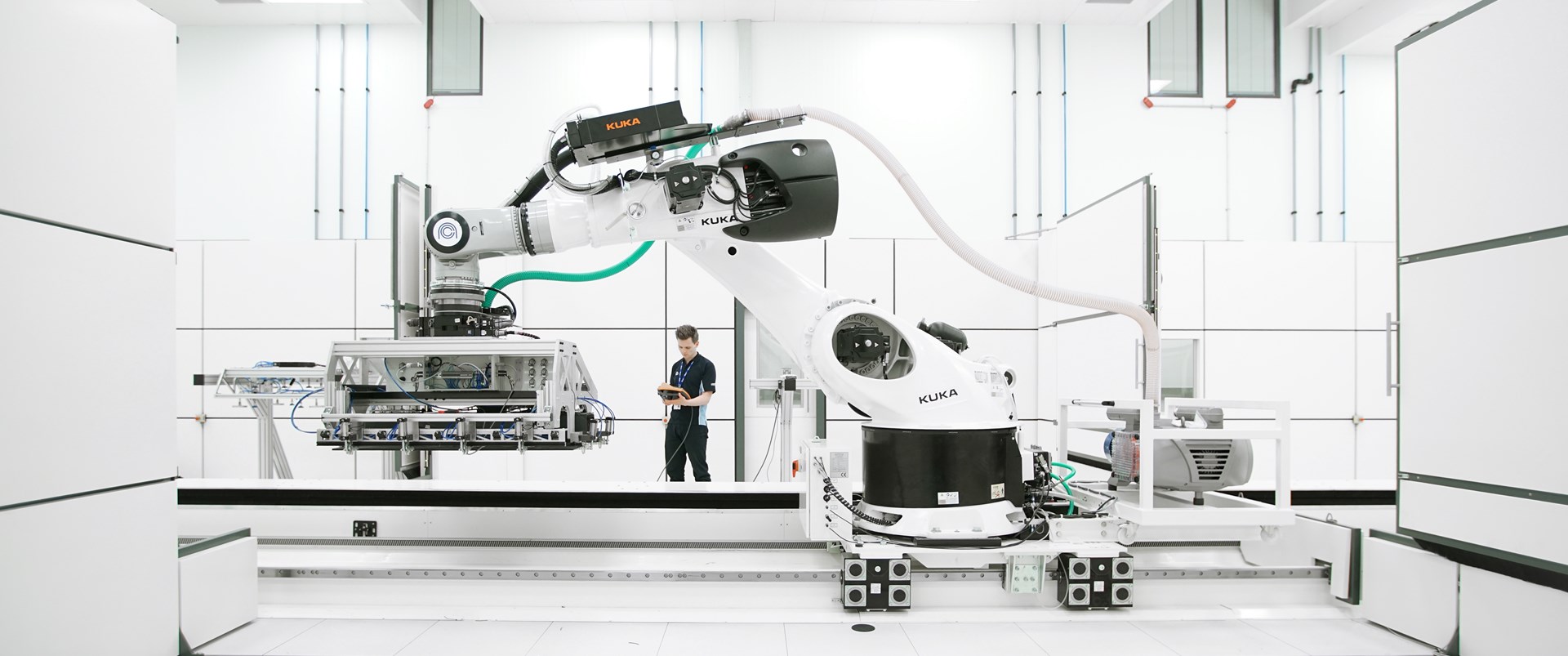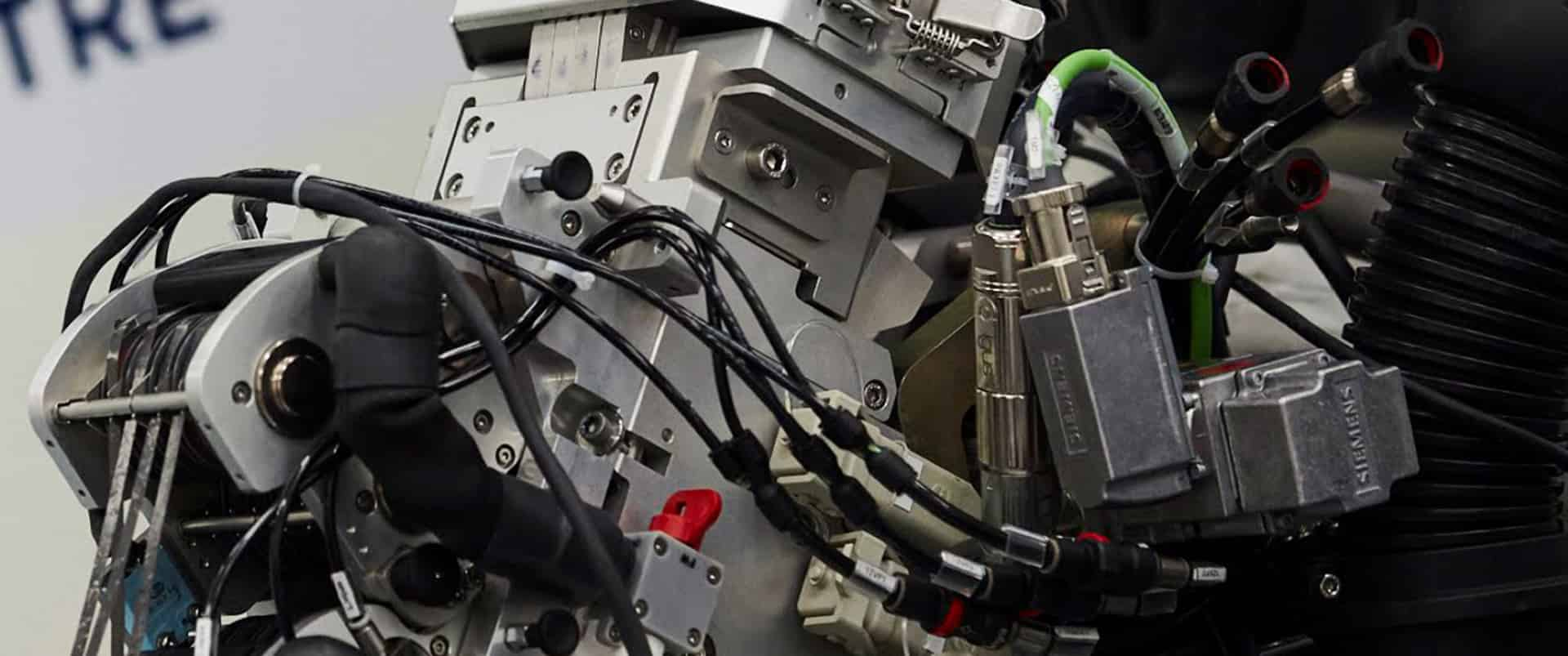11 August 2021
The NCC's Core Research Programme will push the boundaries of UK technology by solving some of the biggest challenges that industry faces in the use of advanced materials, with particular focus on Sustainability and the Hydrogen Economy.
Composites are the enabling technology that will help the UK achieve Net Zero. Through the Core Research programme – a cross-sector, collaborative initiative involving the NCC’s Member organisations now going into its 11th year – the world-leading research and development centre will find the solutions that will release industry to benefit from the unique properties composites can offer.
With decarbonisation rapidly becoming a critical factor for many industries, more than half of the projects on this year’s programme are focused on enabling the use of Hydrogen as a zero emissions fuel, and the recycling and re-use of composite materials.
Other topics of study include the design of composite structures for extreme environments, high-volume manufacturing of complex thermoplastic composite parts, and the performance of materials at very high temperatures.
Every year, NCC Tier 1 Members drive the technical direction of the Core Research programme, and access research outputs over 15 times the value of their contribution through the collaborative nature of the programme. Tier 2 and Associate Members of the NCC can also access Core’s leading-edge research, with more information available here.
For more information on any of this year’s Core Research projects, get in touch with Jack Alcock (Core Research Programme Manager) and Matt Scott (Core Research Chief Engineer).
Core Research Programme 2021/22 projects
Hydrogen
Composite Cryogenic Tanks: To open up the Hydrogen Economy in transport, storage tanks must be light and safe, something composites can offer. This project is at the forefront of developing the testing methodologies needed to understand which materials perform best at the very low temperatures required.
Composite Pressure Vessel Hydrogen Permeability: Due to its tiny molecules, storing and transporting hydrogen gas is a challenge. By enhancing our knowledge of how high-pressure storage needs to be designed and manufactured to ensure it doesn’t leak, we can provide the composites solution.
Sustainability
Recycling End-of-Life Composites: After successfully demonstrating recycling in last year’s programme, the recycling of composite materials was shown to be an intricate process. This follow-on project will investigate the inter-dependencies of serial recycling processes and the project will provide solutions across the whole value chain, from taking end-of-life composite materials to creating a new application with them.
Recycling of Composite Manufacturing Waste: There are few reliable opportunities to re-use manufacturing waste at present, but the methods developed in this project aim to unlock a potential source of high-value feedstock for enterprising businesses – and avoid unnecessary landfill.
Composite Design for Sustainability: The early decisions made when a product is being designed have major implications on its full-life impact on our planet. This project will highlight the need and create a framework for future designers to consider the sustainability of their product in all stages of the design and manufacturing process.
Recycled Composites Supply Chain: As well as technologies, industry also needs a viable supply chain to decommission, sort and recycle large composite structures. The cross-sector supply chain map produced in this project will show the full route for second-life composites in tomorrow’s world.
Durability
Composite Interface and Durability: There is a lack of understanding and industry confidence in composite to metallic joining in subsea conditions. This project will develop the best practices and tools for successful joint design and qualification to increase adoption in subsea structures and applications.
High Volume
Overmoulding of Butt Jointed Aerostructures: The Overmoulding process represents a step-change in the production of high-rate, high-quality and high-performance composite structures. The first two years of this programme have achieved complex tooling and automation solutions, and a fully-automated process for enabling the technology to be used. This year will bring these developments together to complete a series of manufacturing and performance investigations to provide confidence for the uptake of the technology.
High Temperature
AFP of Ceramic Matrix Composite Materials: Ceramic Matrix Composite materials have significant performance advantages over conventional composites in very high temperature applications, but their use is hindered by high material costs and labour-intensive manufacturing processes. This project will use the NCC’s state-of-the-art technology in automated deposition to develop a low-cost solution for utilising these materials.
Fire Resistant Structural Composites: Established design principles advise engineers to protect composites from fire with other materials. This project turns this idea on its head by asking “what performance can composites achieve even in the event of a fire?”
Explorative
Modular Infusion: This novel concept allows different sections of a single part to be manufactured independently from each other. This reduces process risks and allows different materials to be used in large and complex components, dramatically expanding the possibilities of items manufactured by liquid moulding processes.


